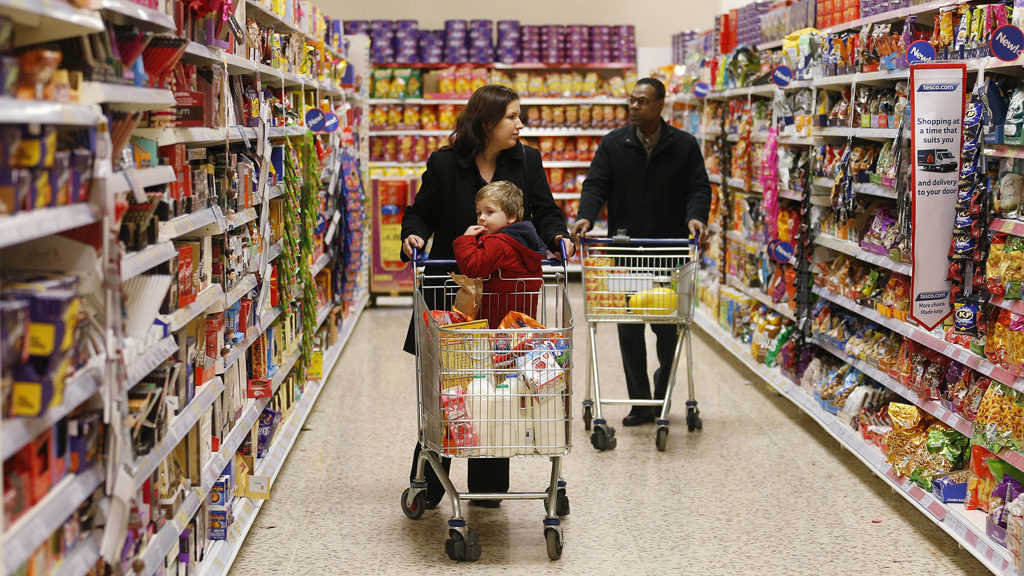Tesco profits down for the first time in two decades
Britain’s biggest retailer, Tesco, sees a sharp drop in profits for the first time in 20 years, following a failed attempt at entering the US market.

The group confirmed that it now plans to pull its Fresh & Easy business in the US, in a closure which will lead to a £1.2 bn write-off.
Despite revealing that profits were down 52 per cent, to £1.96bn, Tesco insisted that its plans in the UK were on track, saying that like-for-like sales growth were the best in three years during its final quarter.
But the company was forced to admit that it has scrapped plans to open stores on 100 UK sites, leaving it with a write-down of £804m on land bought at the height of the property boom.
Philip Clarke, Tesco chief executive, said: “The large stores we have are great and we are doing a lot of work to make them more vibrant and relevant for today’s customers, but we won’t need many more of them because growth in future will be multichannel – a combination of big stores, local convenience stores and online.”
Online race
Retail analysts said that the decision not to open the stores were evidence that competition is now more fierce online.
Tesco said online sales reached the £3bn milestone after rising 13 per cent in the year.
Describing the move as a “welcome shift in strategy”, Panmure Gordon retail expert Philip Dorgan said: “The space race is over. The digital race is on.”
However, news of the fall in profits led to jitters among investors. Richard Hunter, head of equities at Hargreaves Lansdown Stockbrokers, said investors were “not entirely convinced” by the group’s turnaround plans.
He added that it will be a “slow process before the company can hope to recapture its former glories”.
The world’s third biggest supermarket group, Tesco has been hit by the horsemeat scandal in recent months. The retailer had to pull four products from the shelves at the height of the crisis, and consumers steered clear of frozen meat products.
Mr Clarke admitted that the supermarket had been affected by the horsemeat scandal. But he insisted that any impact on sales were “minimal”, and that trading was now back to normal.
UK like-for-like sales fell 0.4 per cent excluding VAT and fuel over the year, despite buoyant Christmas trading. A five per cent fall in general merchandise sales also weighed on its performance.
Read more: £1bn revamp for Tesco, but will customers buy it?
Mis-selling
Tesco Bank, the group’s financial arm, also had to increase its bill for compensation claims relating to mis-selling of payment protection insurance (PPI), up from £30m in the half-year to £115m.
Its shares fell 3 per cent after the writedowns revealed costly mistakes in recent years.
Trading profits in the UK wing of the business fell 8.3 per cent to £2.3 billion in the year to February 23, despite a £1bn overhaul announced last April.
However the move to withdraw from the US means that post-tax profits have slumped by 95.7 per cent to £120m. Underlying pre-tax profits fell by 14.5 per cent, to £3.5bn.
Plans for exiting the US were described as “well-advanced”, and there has been interest from buyers for parts of the business. It is hoped that it would be able to sell Fresh & Easy as a whole to avoid redundancies among its US workforce.
‘Eye off the ball’
There are also plans to leave Japan, and the group is thinking carefully about operations in China.
Retail analysts warned that a fall in profits was inevitable. Phil Dorrell, director of the consultancy Retail Remedy, said: “Tesco’s ignominious exit from the US will grab all the headlines but the truth is that even without the Fresh & Easy debacle the supermarket would probably still have seen its profits fall for the first time in 20 years.
“The bottom line is this: Tesco took its eye off the ball in spectacular fashion and, in its goal to be a world-beater, forgot to take care of the basics.”
Tesco has been in recovery mode since falling market share and intense competition prompted the chain’s first profits warning in 20 years in January 2012.